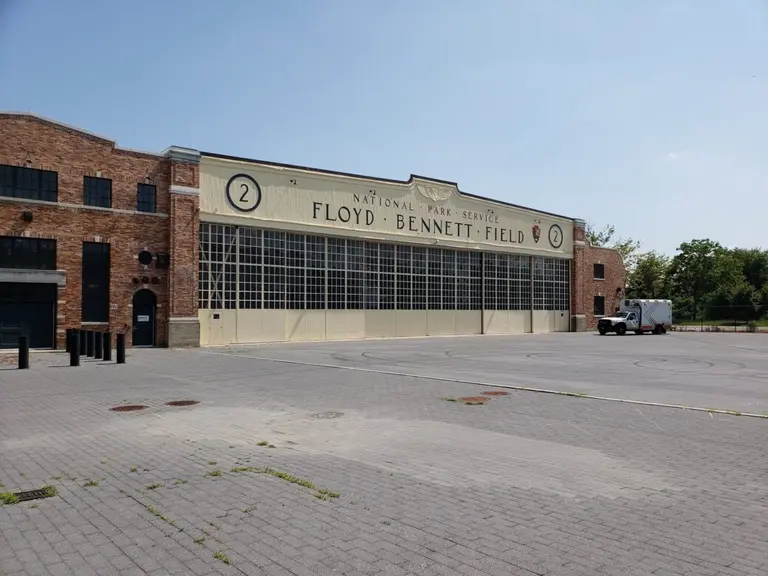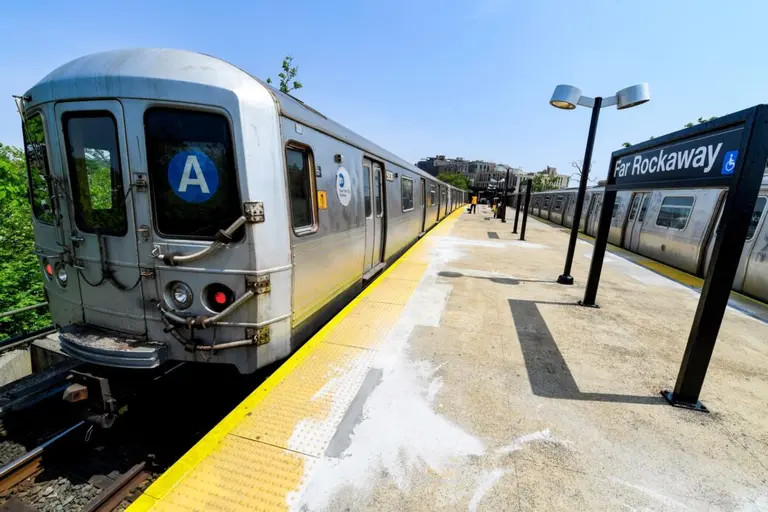NYC Comptroller calls for end of 421-a tax break, estimated to cost city $1.8B in revenue this year

Brooklyn Point in Downtown Brooklyn offers 421-a benefits through 2045; Rendering by Williams New York
The controversial 421-a tax abatement program that provides a tax break to developers who set aside affordable housing at new developments should not be replaced when it expires in June, says New York City Comptroller Brad Lander. According to an analysis released Wednesday by Lander’s office, the tax program will cost the city $1.77 billion in forgone tax revenue in 2022, without creating homes that are affordable to most New Yorkers. While Gov. Kathy Hochul unveiled a replacement plan as part of her budget, the comptroller, along with other elected officials, called the governor’s proposal too “modest” and instead wants deeper structural reform of the property tax system.
According to the comptroller’s report, the current program, which began in the 1970s and has undergone several changes since, is “expensive and inefficient,” costing the city an estimated $1.77 billion for 64,000 exemptions in the fiscal year 2022. The report also found the income-restricted units that stem from 421-a buildings are not affordable to most residents.
More than 60 percent of the non-market-rate units created between 2017 and 2020 were set aside for families earning 130 percent of the area median income; this means a family of three would need to earn $139,620 for a $3,400/month two-bedroom apartment. Only about a quarter of New Yorkers can afford these apartments, according to the report.
Hochul’s new program, dubbed “Affordable Neighborhoods for New York,” creates a new property tax code, 485-w, to replace 421-a, if approved by lawmakers. While the governor’s proposal does call for the units built to be more affordable, a lot of the structure of the existing tax abatement remains.
As part of the current 421-a program, developers can opt to build affordable apartments at 130 percent of the AMI, which is over $108,000 for a single household or roughly $139,000 for a family of three. Under Hochul’s “ANNY,” developers would have two options to qualify for tax breaks when constructing new rental buildings. Rental projects with 30 units or more would be required to have at least 10 percent of units affordable to households earning 40 percent of the AMI, 10 percent affordable at 60 percent of the AMI, and 5 percent at 80 percent of the AMI.
Developers constructing rentals with fewer than 30 units would be required to make 20 percent of the units affordable to households earning 90 percent of the AMI, or $75,240 for an individual or $86,000 for a family of three. These smaller buildings would be required to maintain affordability restrictions for 35 years after construction is completed.
Hochul’s plan also gives developers more benefits for condo and co-op projects than the existing program. The current program provides a full tax exemption for 14 years and a 25 percent exemption for six years for condos and co-ops. Hochul’s plan gives co-ops and condos a full tax exemption for up to three years during construction and for 40 years after work is complete.
“Rearranging the number and letters is tantamount to slapping a gold-plated bandaid on to hold together a deeply inequitable and opaque property tax system, and then pretending we’ve fixed our affordable housing crisis. Tinkering around the edges may be what developers want, but it’s not what New York City needs,” Lander said.
“It’s time to let 421-a sunset – and take our best shot to build a fair and stable property tax system that eliminates disparities, facilitates rental development, and focuses our scarce affordable housing resources on genuinely affordable housing.”
With the current program set to expire on June 15, Lander said there is now an opportunity to truly overhaul the system. The report recommends state legislators let the program lapse and set a deadline of December 31 to pass structural property tax reform. The report also recommends applying uniform tax rates for both rentals and condos to spur more rental development; currently, the median tax rate on rental buildings with more than 10 units is double that of condos, according to data released last year by the city’s Advisory Commission on Property Tax Reform.
Supporters of the current program, as well as Hochul’s replacement, say allowing 421-a to lapse would stop housing production. But Lander says when the program stopped for a year in 2015, developers rushed to build projects before the deadline, resulting in about three times as many permitted units in that year as in the years prior and after.
The Citizens Budget Commission disagrees. The group released a report on the tax break that calls for 421-a to be amended, not ended, which would “significantly reduce rental housing development, worsen the city’s existing housing supply shortage, and make New York City’s already scarce and costly rental housing scarcer and more expensive.”
The Real Estate Board of New York also voiced support for Hochul’s 421-a revamp proposal. “485-w would provide an important tool for producing rental housing at deeper levels of affordability permanently across the city, particularly in areas like Gowanus,” James Whelan, president of REBNY, said in a statement.
“At a time when we face a critical need for new affordable rental apartments, we must seize this opportunity right now — regardless of longterm policy ideas, no matter how well-intended. We are confident that the Governor’s proposal will be included in her final budget later this month.”
Council Members Tiffany Cabán and Pierina Sanchez introduced a council resolution on Wednesday calling for the state legislature to not renew 421-a.
“421-a is not an affordable housing strategy, it’s Free Billions for Developers. At a time when we have so many people desperately in need of vital assistance, we have absolutely got to stop this massive giveaway to the wealthy real estate interests who need it least,” Cabán, who represents several neighborhoods in Queens, said.
“New York City real estate is one of the most valuable, most profitable asset forms in the world. It’s time we stopped focusing on pleasing the profiteers, and started focusing on meeting the needs of the everyday New Yorkers who make this city such a desirable place to live.”
The future of the tax abatement will likely be known by April 1, when the state budget must be adopted by lawmakers.
RELATED:
- Hochul outlines replacement for New York’s expiring 421-a tax break program
- Hochul’s sweeping New York recovery agenda addresses affordable housing crisis, homelessness
- Is 421-a dead? Where to find NYC’s remaining tax abatement deals
Editor’s note: The original version of this story was updated to include a statement from REBNY.



























